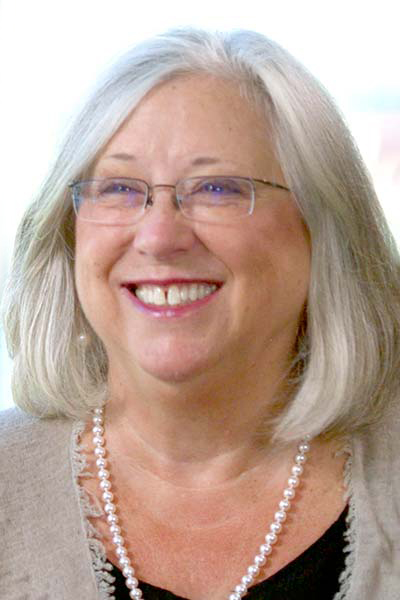AACR President to stress the importance of multidisciplinary approaches to defeat cancer
Cancer research has always been a team sport. But as cancer science delves ever deeper into chemistry, physics, data science, basic biology, and immunology, all these disciplines need to collaborate to bridge traditional boundaries more effectively, according to AACR President Lisa M. Coussens, PhD, FAACR.

“This is an old story with new components. We all need to think much more broadly,” said Coussens, Deputy Director for Basic & Translational Research, Knight Cancer Institute, Oregon Health & Science University.
Coussens will examine emerging concepts that are bridging disciplines to impact discovery science and clinical care during her presidential address this evening. The session, Identifying Immune Vulnerabilities in Solid Tumors: Leukocyte Communication Networks Regulate Neoplastic Progression and Response to Therapy, begins at 5:30 p.m. ET in the Chapin Theater at the convention center.
“From my own lab, we have learned a great deal by studying basic biology of breast cancer using murine models,” she said. “Based on the various vulnerabilities we have identified, our data indicate that the most effective therapeutic strategies will combine therapies targeting vulnerabilities within neoplastic tumor cells in combination with others that target tumor cell-extrinsic programs. Our preclinical studies illustrate the concept that multimodality therapy significantly improves outcomes compared to monotherapy. For delivering these combinations to patients, we also need to understand sequencing, how to mitigate toxicity, and appreciate biomarkers to improve patient stratification for risk prediction, response, and resistance monitoring.”
Because of the complexities of cancer and the need to target both tumor cell-intrinsic and -extrinsic programs, future success relies on the ability to collaborate across disciplines with multiple teams, distinct voices, and various points of view at the table to understand and tackle problems, Coussens said.
“Collaborative, multidisciplinary approaches will be highlighted at the meeting this year with the hope that the next generations of cancer researchers embrace team science,” she said. “We should be encouraging them to learn more than one language of science. During their careers, being able to communicate with people who have a very distinct and discipline-specific vocabulary will be more than an asset — it will be a basic requirement. If you can’t communicate across disciplines, you can’t collaborate and do effective team science. We need that multi-team approach.”
Novel ideas and groundbreaking insights don’t always come from expected places or people, she added.
“In addition to conveying the importance of multidisciplinary approaches needed to tackle big problems is the realization that we also need to make room for the next generation and lift them up into leadership roles,” Coussens said. “This year, we have identified new rising stars and earlier career investigators to chair and speak in sessions that many attendees will have never seen before, though likely have read their most recent top-tier paper. Associate professors aren’t usually chairing major symposia or giving plenary talks, but they are this year. Many sessions will embrace multidisciplinary aspects of tumor physiology where vulnerabilities for therapeutic targeting have emerged. Unless we understand these, we can’t possibly target them, monitor them, and develop more advanced therapies for our patients.”
More from the AACR Annual Meeting 2025
View a photo gallery of scenes from Chicago, continue the conversation on social media using the hashtag #AACR25, and read more coverage in AACR Annual Meeting News.

